Program Description Soul music stretches to create a rock and roll revolution in rhythm and attitude in the '70s. Innovators james brown, sly and the family stone, george clinton and famed bass players larry graham and bootsy collins take viewers on a tour of funk as the music becomes bolder and more expressive of the realities of black life. Filmed in new york, san francisco and philadelphia, the program also examines how funky dance hits blazed a musical trail to the disco craze of the late '70s. We were recording at King Records, which happened to be over in Cincinnati, Ohio, which happened to be where James Brown recorded his records. So, that was our opportunity to get on the big stage.
We knew that, so we hung over at King Records every day after school, waiting and watching for anybody. We happened to run into a guy called Charles Spurling, who was an A&R guy. And he liked us, he had heard about us, he wanted to come and hear us. So we invited him down to a club and he came down and checked us out.
He said, "Man, you cats have got a whole new energy, you've got the rhythm thing you all got. I want ya'll to be my band over at King Records." So, that started it, we went over to record some stuff at King Records with him. Once we did that, all the other producers there – Henry Glover, who produced Bill Doggett, Hank Ballard, Arthur Prysock, a whole slew of mugs. He was the first black country & western, soul, gospel, jazz producer, we had a chance to play on all these records before we got with James Brown. So, we got to learn discipline by coming in the studio and vibing, like we did last night.
You come in the studio and vibe, because we didn't know what was gonna happen. All we know is we've got our instruments and if you allow us to play, we're gonna tear this mother up! So, we took that attitude wherever we went. But at the same time, give us a chance and we'll show you. Well, my brother played guitar.
He's eight years older than I am, Catfish Collins. I was just a young, long-haired sucker that looked up to his brother, didn't have a father in the home. You know how young boys look up to their brothers and want to be like them?
I wanted to be like my brother. That's what really inspired me – him. You didn't get music like you get it today, it was kind of far and in between. First of all, we didn't have a radio. You'd hear music coming from a club or the house of someone who could afford a radio or record player.
So, we just had to get music however we could get it or listen to it however we could hear it. Every now and then, my brother would come and practice at the house, and that's where I witnessed music firsthand and how it affected people. I wanted to be like that, I wanted to be cool like that. Especially the jazz players, they werereally cool. They had such an air about them. Not only my brother, there was this guy called Wilbert Longmire.
He was a jazz player out of Cincinnati, Ohio, he became really big. He was bigger than George Benson. George Benson took what he was doing and just blew it all the way up. But Wilbert was a local guy who could play like that, but never stepped out. We've got a lot of those musicians, who are great at what they do but get distracted by the home life, different things, they'd get a little distracted and so you don't step out. So, he didn't step out and George Benson stepped out and just smashed.
We were a local band that decided to step out and the way I got to be with my brother was I had to prove to him that I was worthy. You know, because big brothers are just, "Ah no, you get out of here." I was young. I was nine, I started messing around with the guitar when I was nine years old, and I started sneaking my brother's guitar when he was on his paper route. So, while he was gone, I'd get my brother's guitar out the closet, but the deep thing unbeknown to me was, he knew how he had his guitar packed. Any little move he'd know someone had been messing with his guitar. You don't funk with nobody's funk.
In addition to the House Guests album, Bootsy will be releasing the first EP in a series of archival music releases from over the years. Nothin' But-U will come out June 28th and feature tracks from the last couple of decades, including "Bootsy Play-Cation," a track he cut with the Rubber Band. The song features the type of groove Collins pioneered during his time with Clinton and a mix of funk and R&B vocals.
Our biggest one was "Sex Machine." That was the first to get international attention. That was done after we did a gig. Most of the sessions were after a show. James was always into not letting us have wild fun and hanging out with girls. As you know, you and the fellas, I just don't know about you cats, man. You're young, you want to get out there, drink a little bit, have a bit of this and that.
But we were known for that and James wasn't down with that. He knew if we got distracted we were gonna miss some of those hits he was doing. So, what he'd do was take his time, then take us to the studio, and in the studio we'd rehearse or record something. With "Sex Machine" we were on our way to the studio and we were riding a bus, from the gig, and he said , "Bobby, gimme something to write with." He got a brown paper bag, tore the paper bag in half and he started writing. Bootsy, Catfish, come on up here." Man, when I talk like him, it's… man!
He said, "Come on up here." We went up in the bus, sat right behind him and Bobby Byrd, and he wrote the lyrics. Get on up, get on up…" That was our thing, so we had to read his body language. So, it was like being in Japan and you don't know the language. You have to interpret what he's doing, what he's feeling, what he's saying. " "Yeah, yeah, yeah, that's it, that's it.
That's it, son," , and then I'd fall in with the bass thing. "Yeah, Bootsy, Bootsy, Bootsy, you're killing me, you're killing me! " So, we started right there, and we'd take that to the studio. Once we got to the studio, we had a good vibe of where we were going. That's pretty much the way we would start it up.
Some of the times we would go to the studio and we might be rehearsing on something, and James might hear something and go, "Uhh, right there, right there. Just do that." And then that would become a song. That's kind of how we record now.
Of course, we've got all the goodies to help us. But then it was right off the top, and you had to do it until you got it right. It wasn't like you could walk in the studio and bam, there it is.
You might come up with the thang, but you have to make it perfect. We all wanted it that way, too, so that was another good point. However, there are enough beautiful love songs ("Pearl Drops"), danceable grooves ("Shiggy Wiggy"), and whomping bass lines ("Ever Lost Your Lover") to keep you from getting too disappointed. Predictably, the funkiest tracks are the reunions with Bernie Worrell ("Penetration ," "Fresh Outta P ").
Mostly produced by Bootsy, though Mousse T., Boogieman, Tabularasa and Norman Cook all participated. The musicians are mostly Bootsy regulars, though Salsoul veteran Vincent Montanaguests on vibes. Musically, Collins is still uncovering the many ways King Records imprinted itself on his sonic DNA, regardless of what he was wearing or who he was playing with. That same force was still grooving on last year's World Wide Funk, with touches of funk, rock, R&B, soul, bluesy country, and hip-hop.
And Africa, man, I think it was Fela Ransome then, later Fela Kuti, he invited us to his club. He was known as the James Brown of Africa, and, man, he invited us to his club. See this space here, but it's like maybe eight times bigger.
And the roof – there was no roof, it was sky and stars, so when you look up it's like you're outside. All you could hear on the way to the club is these rhythms and you'll be talking to whoever you're talking to and you're just grooving for no reason. Then when you get to the club and you see all these cats on the drums and they had guitars and basses. All we knew was Tarzan and Jane in Africa, that's all we knew.
So when we got to Africa and saw all this, it was, "Oh, my god! That's one thing that changed my life. I can say it probably had a deep effect on my life. The rhythms that they were doing, even though we didn't have tape recorders and stuff like that, we were good at keeping things in the mind.
Our minds were sharp, because we had to use them. We didn't have computers, the easy way to do it. We had to use what we had humanly developed. That's where we're getting weak at now. When you have to use something, it's like a muscle.
When you use something it gets stronger. When you stop using it, it gets weak and you go to something else. I think as humans are evolving, but at the same time we're losing the capacity to think on our own, because we've got something to think for us.
Which I'm not saying is a bad thing, but we're definitely losing the capacity to go in the studio and say, "OK, like we did last night." We didn't know nothing. But we just went in there and there was no pre-nothing, just, "Nick, what you hear, man? I don't know how I got on the subject, but that's the way the funk works. But it feels so good to be able to vibe with each other and when we got over there and started vibing with them cats, we rubbed off on them and they rubbed off on us. But to that point, we can't let catastrophe have the last word. You're going to go through things.
Bringing it back to house music, house comes from that black music tradition where these people from cast-out communities would come to warehouses to party all night and to let that funk out, right? These are your Black, brown, and a lot of queer communities coming together, and the roots of the Black tradition is letting that suffering speak through your music. And we've seen that throughout history. With my music and with this label that we're launching, Purple Label Sound, we hope to bring that back in a meaningful way for house music, in a way that makes sense and that's been in the Black tradition for years. William "Bootsy" Collins is a pioneering funk bassist, singer, and songwriter.
Bootsy was instrumental in Parliament and Funkadelic together with George Clinton and Bernie Worrell. He is well known as one of the founding members of the 'P-Funk' sound. Formed around Roger Troutman and three of his brothers, Zapp was among the leading lights of the rich '70s/'80s Dayton, Ohio, funk scene.
Released in 1993, by which time rappers including Tupac Shakur and the Beastie Boys had begun to champion Zapp, ALL THE GREATEST HITS became a platinum certified, Top 10 R&B album, and is now available as a double-LP on colored vinyl. On July 23rd, 1970 — just a few weeks after Billboard first started reporting that radio stations were playing the single — Brown and the J.B.'s went back into the studio and cut a nearly 11-minute version of the song. It's looser and funkier, and more confident, since by that point the J.B.'s knew the song well enough to vamp while Brown rapped about all his favorite cities while squealing and shouting "Good Gawd!
" Lenhoff added some fake crowd noise and they put the track on a live recording from before the Collinses' time in the group, and called the LP Sex Machine. When it came out that fall, it did as well as the single, making it up to Number 29. You can't control this creative force; nobody can.
With all the examples we get, haven't we learned anything yet? It ain't about controlling nobody. It's about having fun with each other, sharing with each other, and not dictating. "I own you." "No, you don't own me! " That's the crap we've been put on.
It's not just musicians and artists, it's the world. But I think musicians and artists can help change that. That's what I'm looking forward to, is first for us to get that out of our minds. When you're in a studio, it ain't about dominating, unless you're called on. When you're called on to dominate, like we did last night.
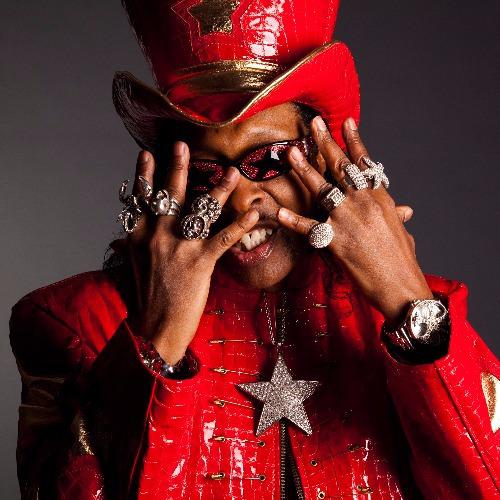


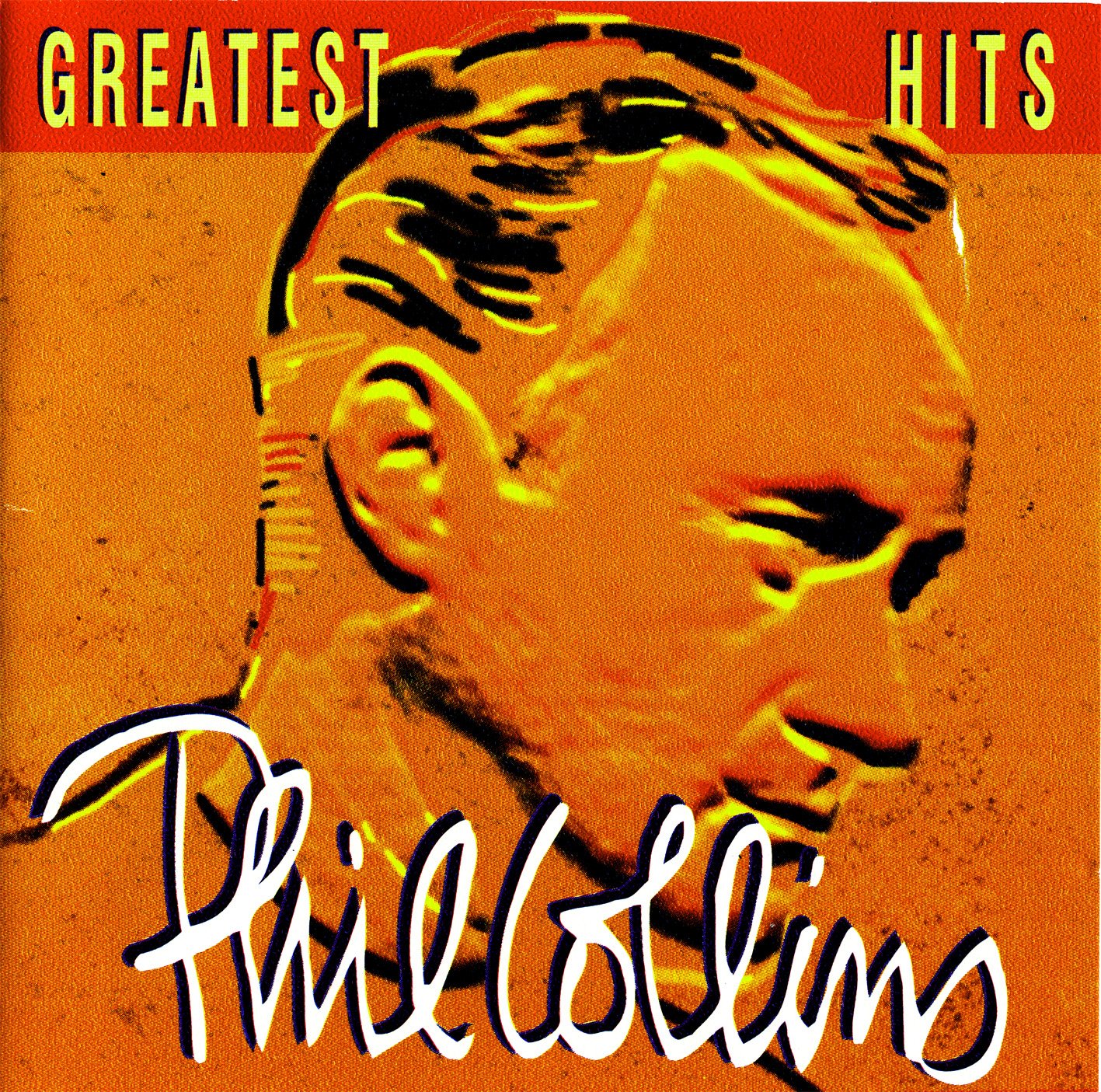
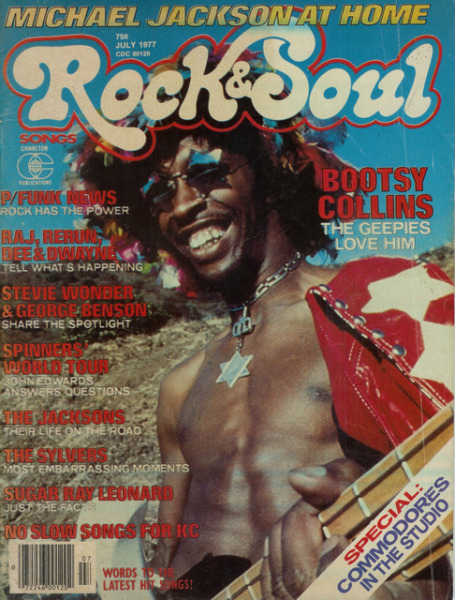


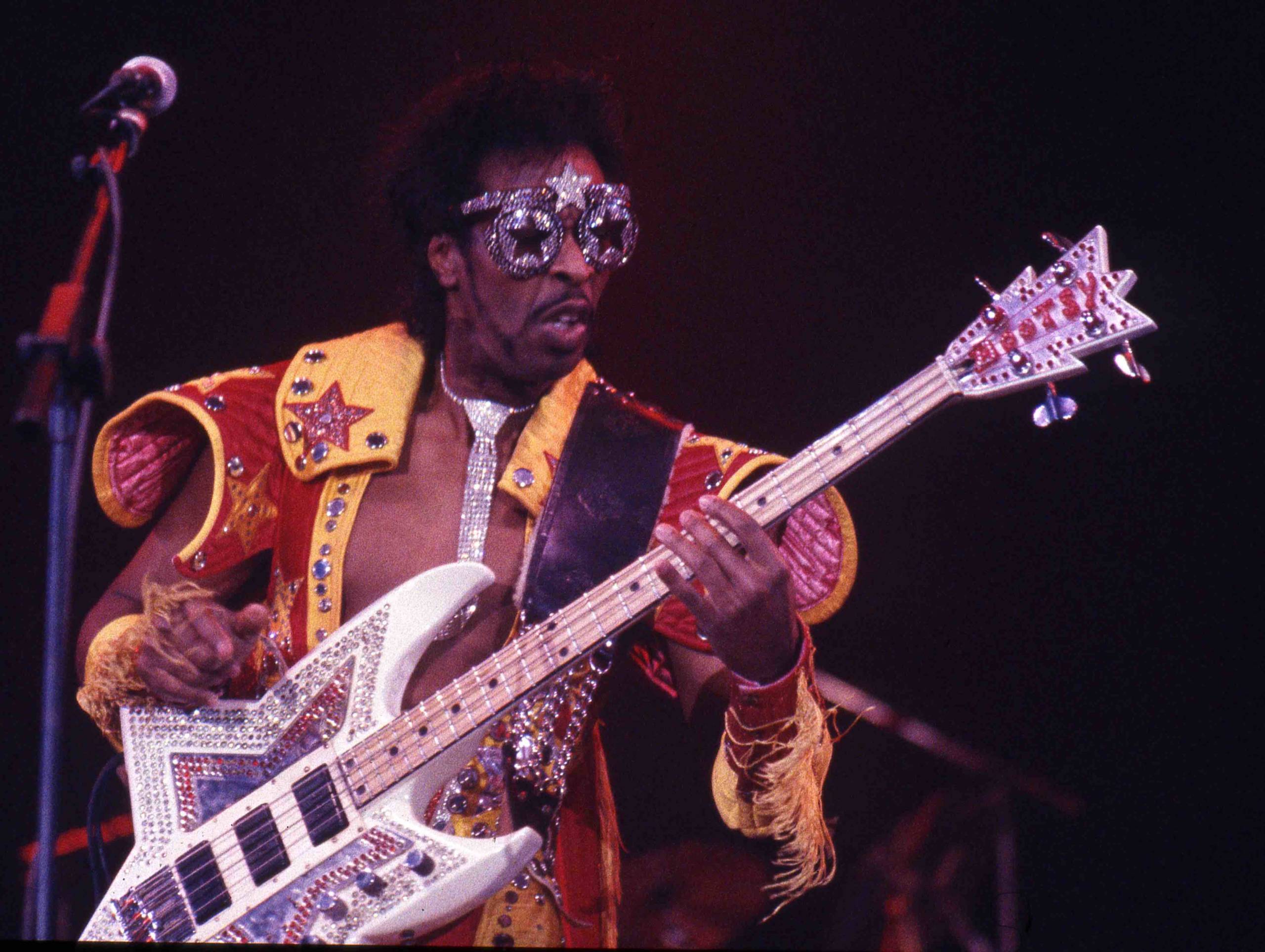



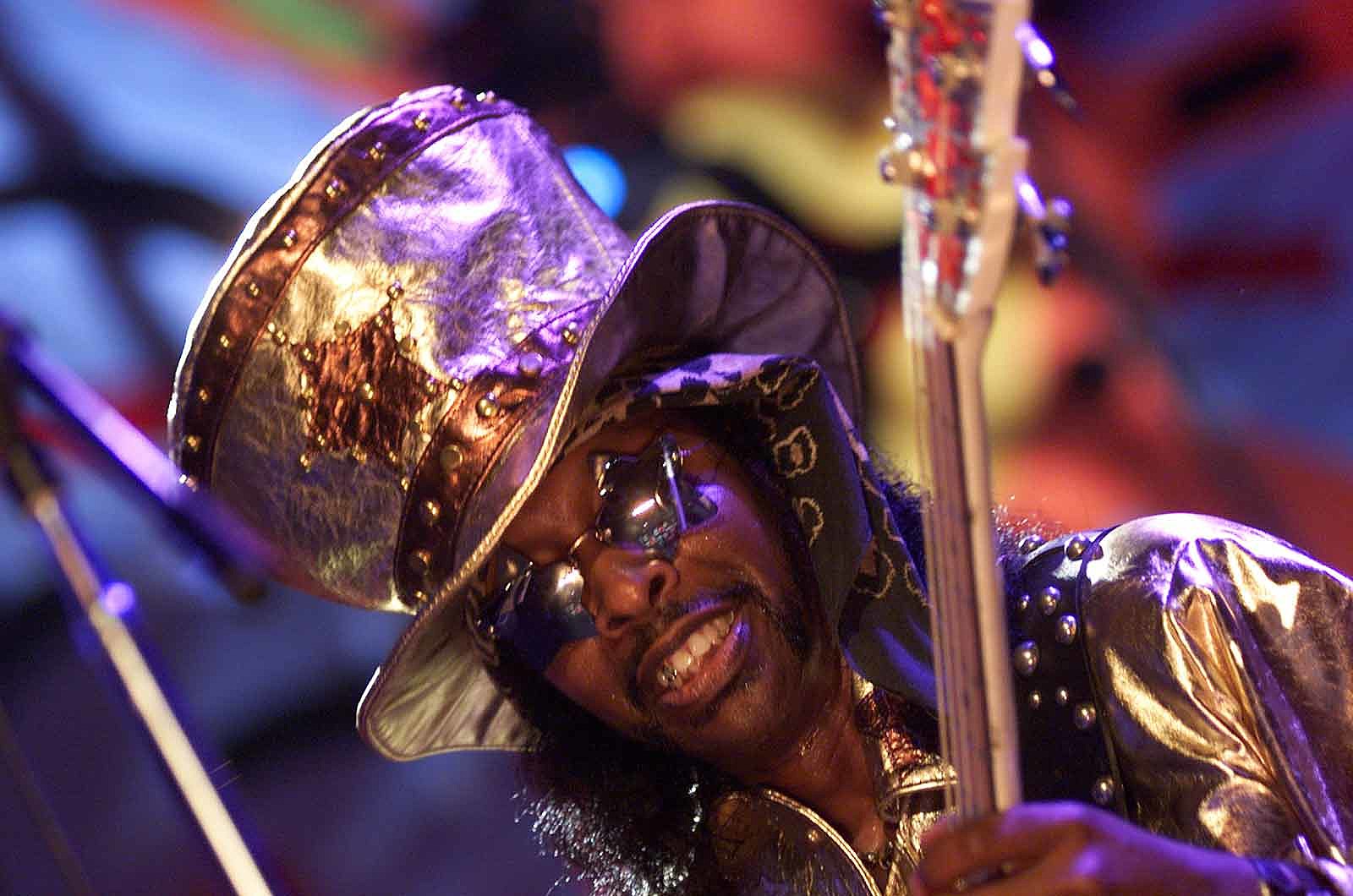
















No comments:
Post a Comment
Note: Only a member of this blog may post a comment.